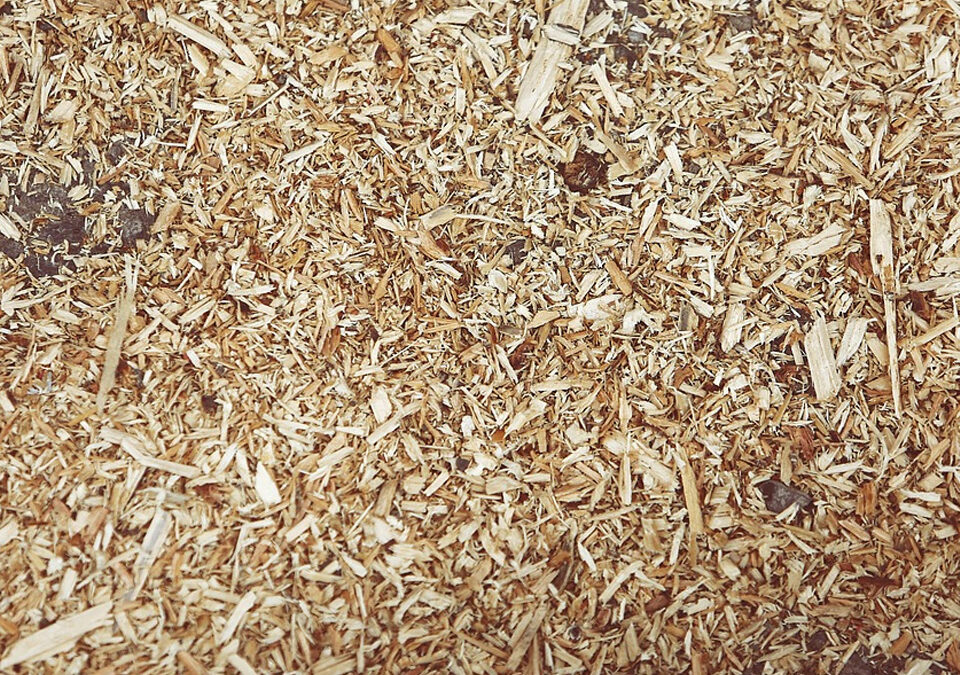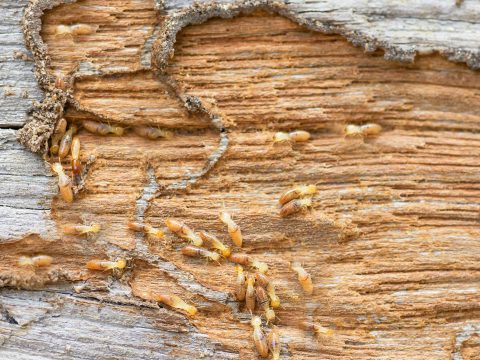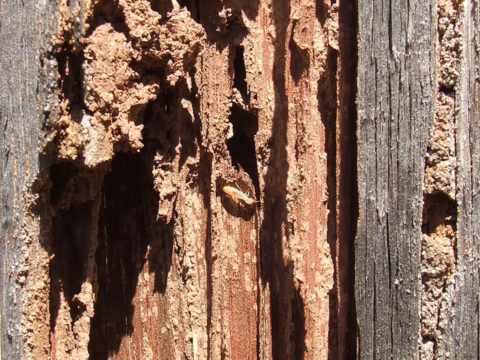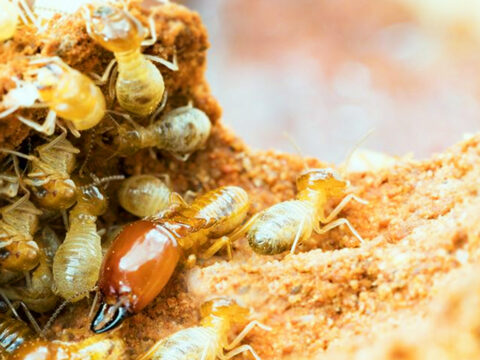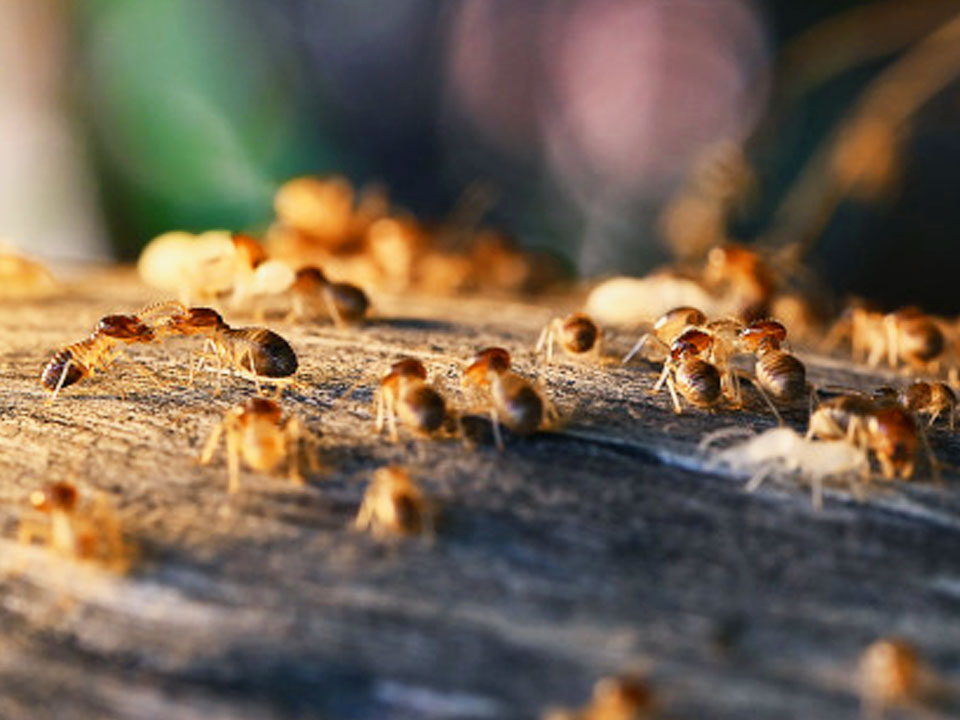
Can Termites Be Heard: What Sounds Do They Make In Walls?
May 26, 2021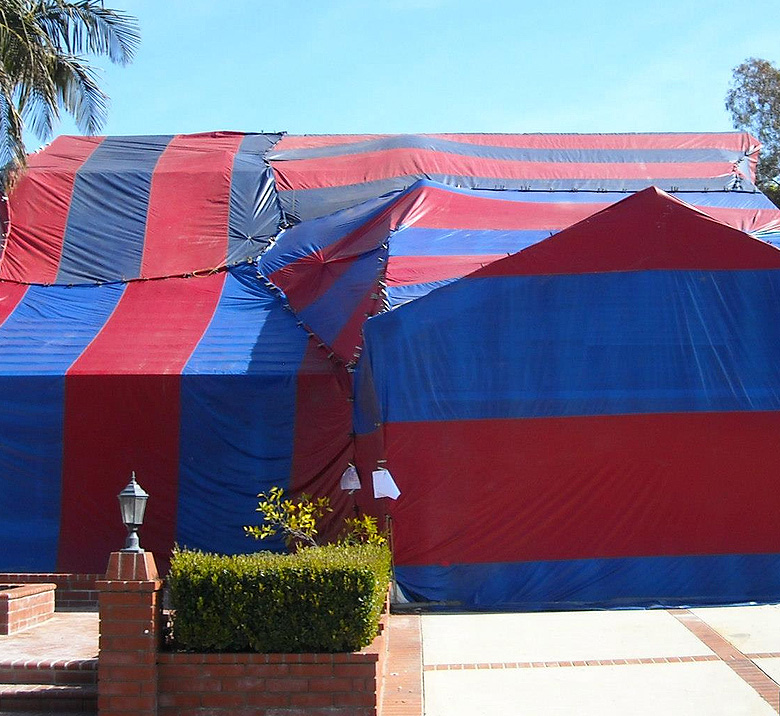
Is It Dangerous To Live Next To A House Tented For Termites?
July 21, 2021Many homeowners are concerned when they find termites in mulch piles in their yards. Without a doubt, mulch around the house could help attract termites. After all, you might be wondering what is the connection between mulch and termites.
So let’s take a look at what mulch and termites have in common.
Does Mulch Cause Termites?
Wood mulch acts as a magnet that attracts termites. Layers of organic mulch material are dark inside, retain water, and provide shelter from harsh weather conditions, and therefore make it an inviting habitat.
The top reason why mulch is commonly used in landscaping is that it contains moisture which is ideal for growing trees, flowers, and shrubs, among many other plants. Termites need moisture to survive and therefore are naturally attracted to it, they thrive in a moist and cool environment and that is why they are attracted to mulch.
Moist and cool areas create a conducive environment for destructive termites to explore other locations around them. The moist mulch layers provide cover for termites to build tunnels that they use for exploring the area in search of food. This way, they can easily infest the surrounding areas, including your house. They will also use these tunnels as escape routes and hideouts.
However, it is important to note that termites don’t feed on mulch despite the fact the mulch is made of wood, which is their favorite meal, they will still not feed on dry mulch. As they do not necessarily eat mulch, they will use it just as a starting point to establish their colonies, or continue to grow them. This can be even more true if they find mulch piles that are constantly kept very moist.
So, the only thing that attracts these insects to mulch is the moisture and cool environment in it that enables them to survive and thrive.
Mulch provides easy access for termites to feed on your house. Therefore, if you have mulch in your yard and you have just realized that the number of termites has increased, then it could be because the mulch piles are providing the perfect environment for these pests to thrive.
It Is Okay To Put Mulch Around Your House?
Yes, it is okay to put mulch around your house provided that it’s resistant to termites. Also, when using mulch for landscaping, ensure that you leave some space that’s about six inches away from the house. This space creates a barrier that will make it harder for these pests cross over and invade your house easily. It will also help you detect termite presence at an early stage before they multiply and cause massive damage to your property.
Remember not to pile mulch too high up against your house siding. Additionally, ensure that you replace your termite-resistant mulch after every 2 to 3 years. As mentioned earlier, termite-resistant mulches usually lose their effectiveness as they age. Therefore, it is recommended that you replace your mulch often to keep termites at bay.
What Kinds Of Mulch Attract Termites?
It is important to note that not all kinds of mulch attract termites. In fact, some mulch is an instant turn-off to termites. On the other hand, some mulch is very attractive to them.
The mulch that mostly attracts termites is one that contains sapwood. These critters enjoy sapwood as a meal and are attracted to this type of mulch. Other types of mulch that attract termites include those made of slash pine and loblolly pine.
Also, mulch that has been lying around for too long usually attracts termites. It is important to note that termite-resistant mulch usually loses its effectiveness over time. So, if your mulch has not been replaced for a long time, then it would easily attract termites.
What Is The Best Mulch To Use To Avoid Termites?
The best types of mulch to use to avoid termites include:
Cypress heartwood –
Cypress heartwood is among the most potent termite-resistant mulch. A recent scientific study conducted on the cypress heartwood mulch showed that the extract from this wood is very effective in preventing and deterring termite infestations. It’s the aromatic property of cypress mulch that helps repel insects such as termites.
Cypress heartwood also has powerful antifungal properties that help to slow down the rate of decay, thus making it effective for a long time. Cypress heartwood can help to keep termites at bay for up to 4 years.
Melaleuca mulch –
Melaleuca mulch is also very effective in repelling termites because the smell of this mulch is an instant turn-off to termites. Termites don’t eat Melaleuca mulch and they don’t love leaving under it.
Cedar heartwood –
If you use this mulch for landscaping, then you are guaranteed that termites won’t come close to your home. The resin from cedar is toxic to termites. Besides keeping termites at bay, cedar mulch can also deter other insects such as cockroaches or odorous house ants from your house.
Inorganic mulch –
Although inorganic mulch provides a cool and moist environment that is ideal for termites to thrive, they don’t like it. The reason why they don’t love inorganic much is still under investigation but experts suggest that it is because the environment does not seem natural as is the case with organic mulch.
Overall, pest control is the best solution when locating and exterminating these harmful pests. If you notice the termite infestation on your property getting out of hand, you should call a professional right away.
These pests are very difficult to contain, that’s why Chem Free Exterminating company in Orange County, CA, has trained and experienced technicians who are always available to answer any questions you may have. So, let us help you protect your home from termites. Call us today!

